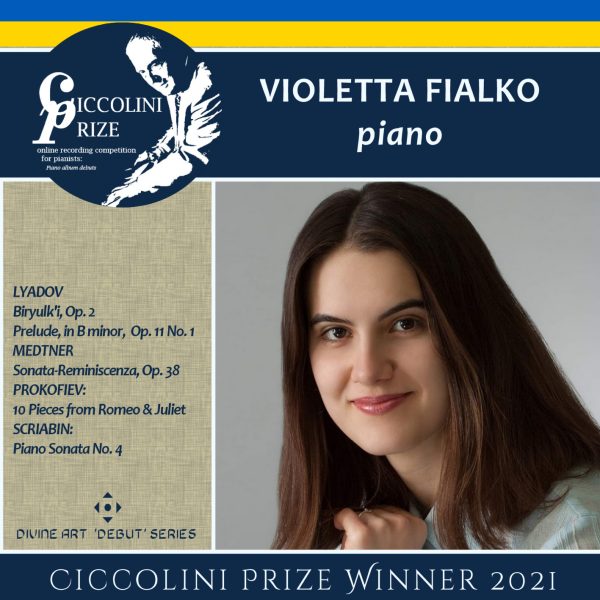Pizzicato
When this program was recorded in Kiev in January 2022, the criminal Vladimir Putin had not yet begun his murderous war of aggression on Ukraine. Ukrainian pianist Violetta Fialko, born in 1997, is the winner of the 2021 Ciccolini Prize. She certainly makes no secret in her playing that she is a woman and approaches music with a feminine sensibility. Prokofiev’s 10 pieces from Romeo and Juliet benefit from this, and while they are rhythmically very fine, they emphasize the melodic throughout and never become motoric or hammering.
Anatoly Liadov (1855-1914) was a fine pianist and composed mostly short pieces in which he could show his mastery of form and expression with little effort, as in the 14-part cycle Biryul’ki (Mikado Playing), which he composed in 1876 when he was a student at the St. Petersburg Conservatory. Violetta Fialko plays the music with great freshness and genuine charm.
The Russian late romantic composer Nikolai Medtner (1880-1951) is no longer a forgotten composer, but he is not very popular either. According to Marc-André Hamelin, one of the best interpreters of Nikolai Medtner’s music, Medtner composed « very genteel, aristocratic music » that « doesn’t have such an immediate drawl as Rachmaninov. Rachmaninov goes directly to the listener. The listener, however, must approach Medtner. For this, his pieces gain ceaselessly with repeated listening. »
Violetta Fialko’s playing of the Sonata reminiscenza is varied and sensitive, controlling the architecture of the work as well as the musical flow. The tonal quality of her playing, the dynamics, the art of lighting and shading allow her a wide range of expression.
Scriabin’s Fourth Piano Sonata, written in 1903, the year he moved from Russia to Western Europe and left his wife and four children for another woman, is the work with which the composer began to break away from the Romantic style and develop his own language. Fialko makes her way with gripping musicianship through the rapidly shifting emotions to the ecstatic conclusion, which Scriabin called ‘focosamente, giubiloso’ fiery and jubilant. (4 stars)
@divineartrecordingsgroup
A First Inversion Company
Registered Office:
176-178 Pontefract Road, Cudworth, Barnsley S72 8BE
+44 1226 596703
Fort Worth, TX 76110
+1.682.233.4978












